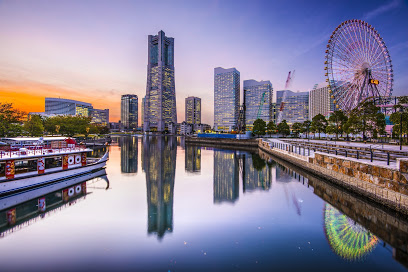Fresh Japanese investment skips China, 156 Japanese firms stayed away from investing in China in last one year
NEW DELHI: The 14000 Japanese companies doing business and having made investments in China are not moving out of China. However, the fresh Japanese investment has chosen to skip China and as many as 156 Japanese companies that could have invested in China, have invested elsewhere but not in China in the last one year.
This was disclosed by the Indian Ambassador in Japan Sanjay Kumar Verma while addressing a virtual session of the Konnichiwa Pune 2021 organized by Indo Japan Business Council (IJBC) recently.

“Japanese companies are not moving out of China, and 14,000 companies that invested in China continue to remain in China, but there are new and interim investments going away from China. In the last one year, 156 companies that could have invested in China, invested outside this country. And going to China is not for their market but for the international supply chain,” said Ambassador Verma.
He was responding to the concern raised by Prof Srabani Roy Choudhury, Centre for East Asian Studies, School of International Studies, Jawaharlal Nehru University. She said that if the alternate supply chain is being structured through its own (Japan) government by giving incentives to their companies to move out of China and find out alternative destinations or go back to Japan, we are at loss.
“While looking at the data I feel this is the chance to attract the Japanese companies to India but sadly it’s not been the way Vietnam and Indonesia have been able to attract them. If the factors like cultural affinity or the distance are the factors but if Japanese investment can go to the USA, which is farther than us (from Japan). That is why we think why we are not attractive enough. We need to create cultural affinity, increase people-to-people exchange, and need to tell them that India is the place to come,” Prof. Choudhury added.

While commenting on the issue of Japanese investment going ASEAN more than India, Ambassador Verma said that the ASEAN offered to them (Japanese) a similar facility. “This is one single market therefore logistics are easier, and one customs union and it’s much easier for them to arrange for the logistics. When they go to ASEAN, they go for the supply chain integration.”
He said that Japan started to come to India in a big way towards the latter half of the first decade of this century, but in ASEAN they were there for a long- long time. By the time the 100 Japanese companies would have come to India, ASEAN had 18,000 Japanese companies by then.
“So, there is a better supply chain integration amongst the Japanese companies themselves in ASEAN, therefore in ASEAN has a lure to attract them to its region. We need to pay a lot of attention to the supply chain eco-system that will attract the Japanese more,” Ambassador Verma added.
Prof. Choudhury said if we look at India-Japan trade and investment trade data, we fall short of ASEAN countries, and this is something we need to figure out.
“Though it’s good to see that the JBIC (Japan Bank of International Cooperation) survey every year has been moving us up and up every year in their viewership among the Japanese business looking at India, so we are number 2 in the long-term. However, in the short term, we are the 4th or 5th in their view of coming to India.”
On this Ambassador Verma said so far as MSMEs are concerned, Japanese MSMEs are not known to be international, and if a principal Japanese company goes somewhere, they will take the vendor-ship with them. “This is what we have seen with Suzuki and Toyota as when they came to India they brought a lot of vendors to them. If we are serious on MSMEs, we will have to focus on those principals that can bring them.”
Related article: Japanese companies in India more focused on domestic markets than global: Amb Satoshi Suzuki
Ambassador Verma went on to suggest that Japanese companies preferred to remain one geography, therefore having good Japan-focused industrial zones or parks such as Neemrana and SriCity that developed so fast when they focused only on Japan.
“In Eurasian, the maximum supply chain has come to India, not to ASEAN. At the moment the startup ecosystem from Japan, the direct investment from Japan is closed to $9.3 billion in the Indian startup ecosystem, and another $4-5 billion which would have come via Singapore or any other country but actually Japanese money,” he added.



